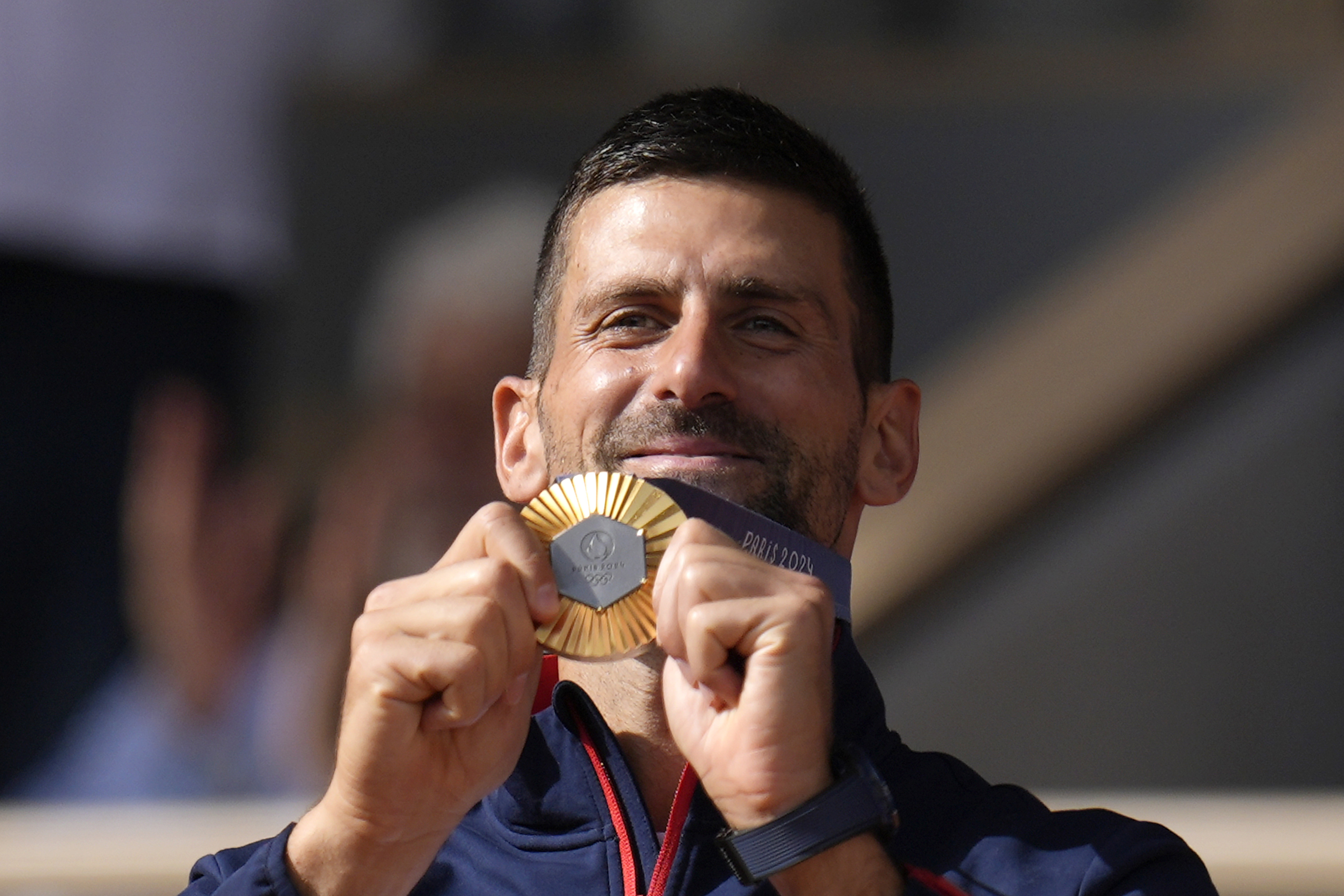For a split second, Carlos Alcaraz was on the verge of breaking a racket for the first time in his career. He had never been so desperate, as he had never been pushed to this extent. The only consolation in defeat is that the Spanish player lost the gold at the Olympic Games in Paris to the best player in history, Novak Djokovic, on his final mission. At this point, Djokovic no longer aims to win another Grand Slam, but the Olympic gold was the aspiration that drove him to get out of bed, train, and dream in recent months.
After winning the match 7-6(3) and 7-6(2), Djokovic, accustomed to winning, cried like a child into his white towel, aware that he now has it all. On the other hand, Alcaraz looked down, unsure of how to react. It had been many months since he last lost, and the victory had been within his reach. That was probably the most exasperating part.
"It's tough. We fought in a match that lasted almost three hours with two tie-breaks. He always brings a very high level in those difficult moments. He deserves this opportunity, and after losing the way I lost, I leave with my head held high," commented Alcaraz after the match, still on the Philippe Chatrier court.
In a different league from the Wimbledon final, where Alcaraz dominated Djokovic, this time the match was incredibly close and was decided by two factors: Djokovic had played many more matches of such importance and had been thinking about this final for a long time. Alcaraz played better tennis, but to defeat Djokovic, it required more than just drop shots; it needed heart, soul, and life. Djokovic, at 36 years old, gave it his all.
The first set was a set... What a set! The best set of the year, the best set in a long time. Alcaraz arrived at the Philippe Chatrier court with the nerves of the moment: his first Olympic final, his second final at the venue. He was like a plane taking off on the clay court, hitting with the power of a heavyweight but missing too many shots. Despite his four Grand Slam titles and hundreds of victories on the ATP tour, he is still a 21-year-old. Djokovic, calmer due to experience, realized that he would have more chances of winning on the slow clay than on the grass of Wimbledon and created four break points in those early games. But he missed. And then it was the Spanish player's turn.
Strong in rallies and delicate with drop shots, Alcaraz punished Djokovic and had up to eight opportunities to break his serve. In fact, with the score tied at 4-4, the game extended with deuces and advantages for Alcaraz. But he missed. And he faced the risk of a tie-break. In today's tennis, in those decisive moments, there is no one better than him, but Djokovic does not belong to today's tennis. Djokovic represents the tennis of yesterday, today, and tomorrow. Djokovic is the player capable of returning an impossible angle shot and covering the net when Alcaraz's passing shot seemed done. With those two shots, he won the set and pushed Alcaraz to the edge.
A towering Djokovic in the second set
During the first set, Djokovic showed frustration - "You're not helping me respond to his serve," he shouted at his team - but in the end, it was the Spanish player who suffered. Sitting on his bench, he rested his forehead on the grip of his racket, seeking explanations for what had just happened. In a five-set match, like in a Grand Slam final, he would still have a margin, but on this Sunday in the Olympic final, there was no room for error. And he didn't make any. Until the second tie-break, the Spanish player was very solid, once again lethal in rallies, but he faced a giant on the other side of the net.
If Djokovic was vulnerable in the first set, he was invincible in the second. The proximity to completing his career with success made Djokovic display the best tennis of his life, especially in his serves. Alcaraz did not have a single break point opportunity, and the clouds darkened around him. It was then, for a split second, that he was on the verge of breaking a racket for the first time in his career. When the tie-break arrived, it was all over.
